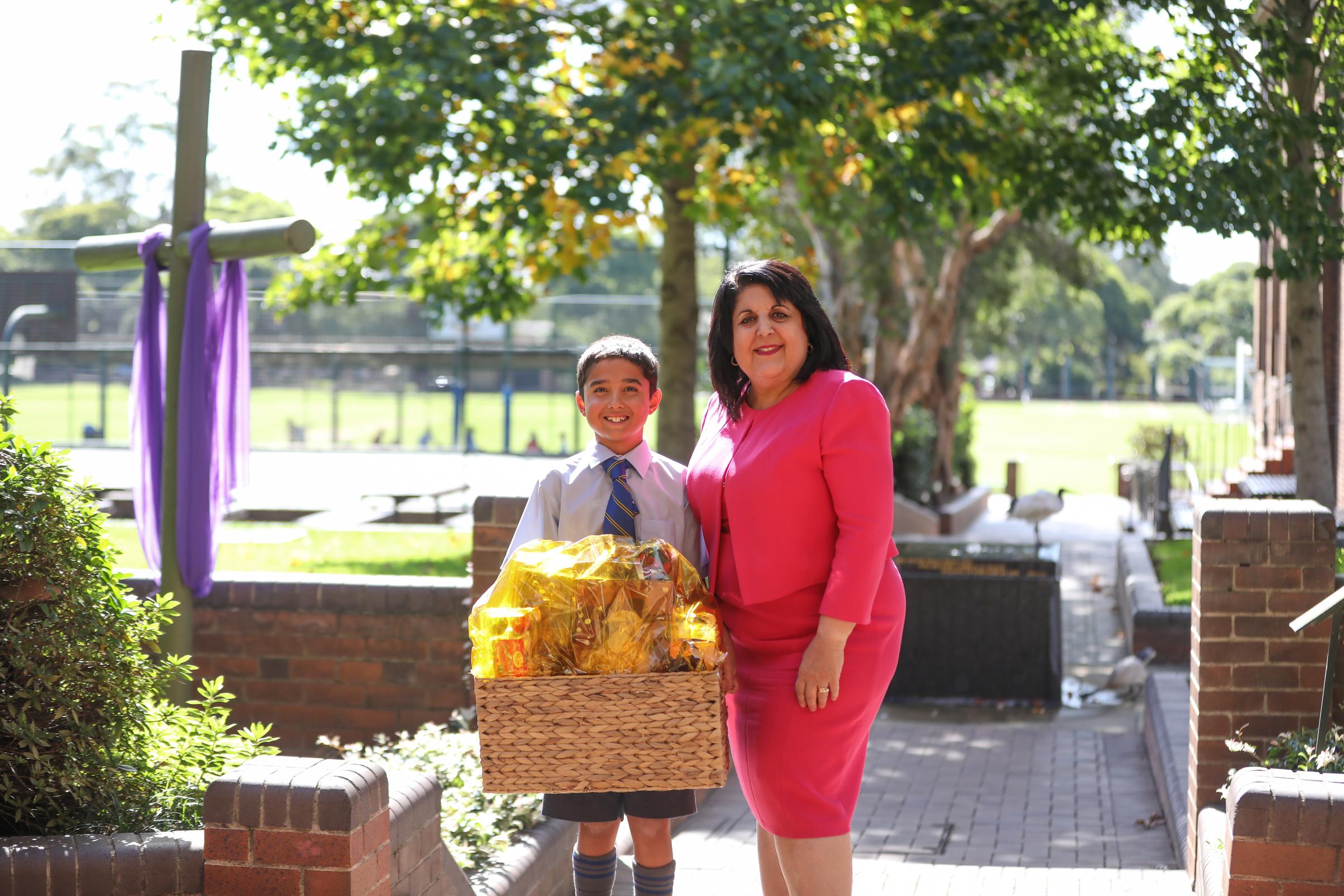Principal

Adolescent Boys and Helping Them Manage Their Anger
In the last week, our wellbeing staff have been working with young lads who have made very poor decisions. They are great kids, but their poor choices were based on the way they managed their anger and their tendency to go for ‘self-help’ options. We all get angry at times and that is because it is a normal human emotion — not bad, just normal.
When our precious sons and their mates begin crossing that long bridge to manhood, many can struggle more with anger. It is important to keep in mind that anger is not the problem — it is a symptom of a deeper problem or challenge. When we have a deeper understanding of the things that contribute to an escalation of anger, particularly spontaneous or irrational anger for our teen boys, we can better support them during this tumultuous, confusing time in their lives.
Many of today’s teen boys have still been conditioned deeply by the male stereotype. One of the key messages of the male stereotype is that real men do not show vulnerable feelings, and anger is an acceptable emotion for men to express. Another key message that is closely linked to this is that men must remain stoic and strong and ‘take it on the chin’.
Early adolescence sees a significant growth in the limbic brain, the emotional brain. Boys feel things even more intensely than they did before puberty. This partly explains both the spontaneity and volatility of the anger that can occur. Much of a boy’s responses to their world and experiences are coming from the least developed part of the brain. The slowly developing pre-frontal lobe affects the ability of young adolescents to manage emotional states such as anger, frustration, fear, boredom, shame, and feelings of worthlessness. Their way of thinking – if they are thinking at all – can often allow them to catastrophise rather than accurately assess the current situation. Self-talk, especially of the inner critic, also becomes louder once puberty has begun.
In the adolescent journey, the biological need to belong becomes stronger and one of the reasons for many seemingly irrational outbursts of anger from our teen boys, is the perception that their belonging (particularly but not always, with a male group of friends) is threatened.
This can happen easily over a poorly received attempt at banter, or when physical connection like a punch or a shove goes badly, or when someone laughs at you. The embarrassment that follows often turns quickly into anger.
One example of this which I experienced when I was teaching elsewhere, was a Year 9 boy who was ‘dacked’ (had his shorts pulled down from behind) by a mate in the school quadrangle. The crushing shame for the boy turned quickly into aggression and full-blown violence. It had been meant as a joke.
I have seen this happen many times and for some teen boys, rather than fight with anger, they swallow the anger, and it builds an enormous resentment towards the perpetrator, or they turn to misusing social media to inflict hurt on the perpetrator. Much later, these feelings can be expressed in an even stronger form of rage.
Here are a few ideas and activities for your son to manage anger and process excess cortisol:
- using a boxing bag at home
- talking to a trusted adult at school or at home
- running, climbing, skating, swimming, surfing, sport
- taking a walk in nature, fishing
- spending time with the family dog
- listening to or playing music
- cooking
- hanging out with friends
- practising mindfulness (there are so many great apps to help!) or
- learning some breathing exercises, such as the 4-2-4 breathing pattern.
We need to help our boys understand that feeling frustrated or upset because you cannot do what you want is normal, but part of growing up is working on self-regulation and learning how to deal with things. Often boys feel frustrated when they feel misunderstood. Frustration can quickly become anger and we need to help boys work out how to manage these big ugly emotions without hurting themselves, others, or the world around them. When they do make a poor choice, rather than correcting them through shouting, shaming, or punishing our boys, we can break the cycle of just further fuelling more shame and anger by instead guiding them through loving connection, quiet coaching and teaching them accountability. They can then accept the consequences of their actions and work to learn from the situation. Again, it is important for any coaching and talk of consequences to be done after everything has calmed down. We need to try not to take the boys’ anger personally as it is more about them than us. After all, it is a long bridge to manhood!
In Memoriam
We keep in our prayers Adriana and Nora Lazkin, who many of the SPC community would know from Nora's time in the Front Office. Nora left us recently after being with the College for six years to care for their beloved aunt, Gladys Waga, who sadly passed away recently after a long illness.
We also pray for Christina Vaccarella, whose mother in-law Giuseppina passed away over the weekend. We keep Christina, her husband Joseph and their son Zander in our prayers.
We also keep in our prayers Matthew Peruzzi (Year 11) whose grandmother, Odelia Restuccia passed away recently.
Eternal rest grant unto them O Lord and let perpetual light shine upon them.
May they rest in peace.
Amen.
Dr Vittoria Lavorato
Principal
SPC boys can do anything! *
*except divide by zero
